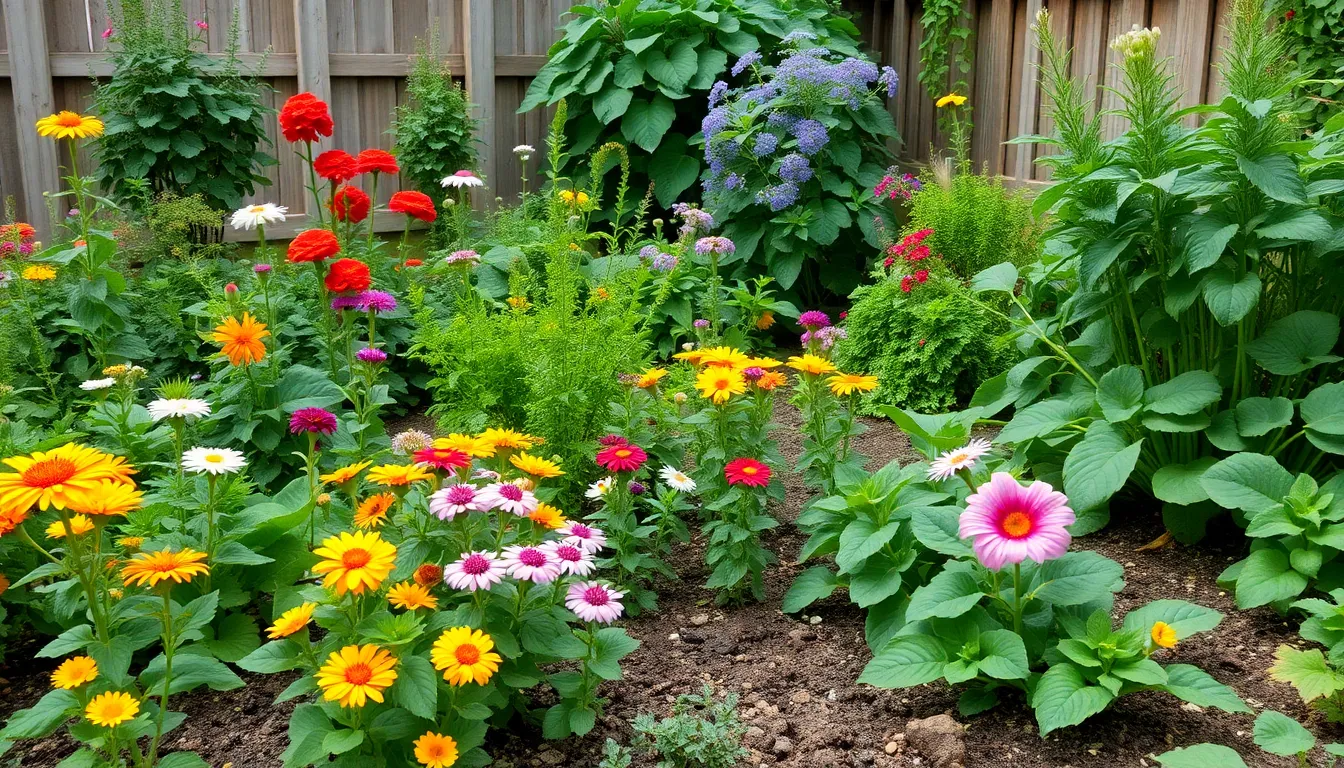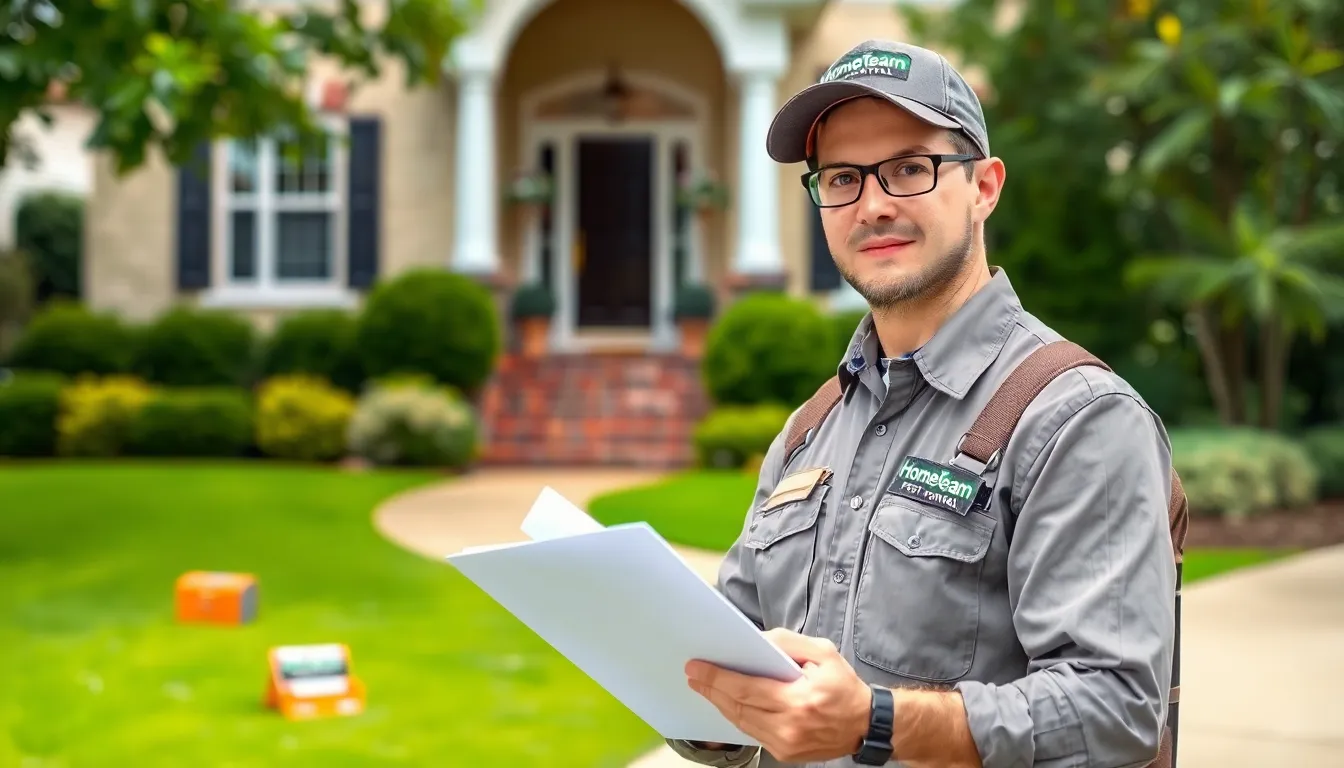Table of Contents
ToggleIn a world where pests seem to throw the ultimate house party without an invitation, organic pest control emerges as the superhero we never knew we needed. Forget the harsh chemicals that could double as a science experiment gone wrong. Organic methods offer a safe and effective way to reclaim your space while keeping Mother Nature happy.
Overview of Organic Pest Control
Organic pest control prioritizes health and environmental safety while effectively managing pest populations. Utilizing natural methods, it serves as a viable alternative to conventional pesticides. This approach often includes methods like beneficial insects, natural repellents, and plant-based insecticides.
Implementing integrated pest management practices enhances its effectiveness. Crops benefit from the introduction of predatory insects such as ladybugs and lacewings, which naturally target harmful pests. Additionally, organic farmers may use companion planting to deter pests, pairing specific plants that combat insect infestations.
Natural repellents like neem oil and diatomaceous earth effectively minimize pest damage without toxic side effects. Utilizing these substances encourages a healthier ecosystem and safeguards pollinators. Moreover, organic solutions reduce chemical runoff, promoting healthier soil and water systems.
Statistics indicate a rise in consumer demand for organic products, with over 40 percent of households choosing organic pest control solutions. This shift signals an increased awareness of the impacts of chemicals on both health and the environment.
Research demonstrates that using organic methods leads to sustainable pest management while lowering exposure to harmful substances. Opting for organic pest control not only protects gardens and homes but also supports biodiversity and contributes to environmental conservation.
Benefits of Organic Pest Control

Organic pest control offers numerous advantages that align with environmental sustainability and personal health. It fosters a safer home atmosphere while contributing positively to the ecosystem.
Environmental Impact
Organic pest control methods dramatically reduce chemical runoff into water systems. They preserve local fauna and flora by avoiding harmful pesticides. Healthy soils and reduced contamination enhance biodiversity around gardens and farms. Organic practices, such as companion planting, naturally deter pests while enriching soil nutrients. These techniques contribute to long-term soil health, promoting a balanced ecosystem. Research indicates that organic methods also maintain pollinator populations, essential for food production.
Health Advantages
Organic pest control minimizes exposure to toxic substances used in traditional methods. Health risks associated with chemical residues on food decrease significantly. Families enjoy safer living environments without the risk of chemical exposure linked to respiratory issues and other health concerns. Natural repellents like neem oil provide effective pest management without adverse side effects. Research suggests that using organic products leads to fewer allergic reactions witnessed in individuals sensitive to chemical pesticides. Overall wellness is supported through a cleaner, chemical-free living space.
Methods of Organic Pest Control
Organic pest control employs various methods to manage pests effectively while maintaining environmental health. These techniques enable homeowners to adopt sustainable practices, reducing reliance on harmful chemicals.
Biological Control
Biological control involves the use of natural predators to manage pest populations. This approach introduces beneficial insects like ladybugs and lacewings, which prey on harmful species. It effectively minimizes pest numbers without harming the ecosystem. Research indicates that releasing parasitic wasps can significantly reduce caterpillar infestations. Implementing such methods not only protects plants but also promotes biodiversity in gardens.
Cultural Practices
Cultural practices focus on manipulating the environment to deter pests. Crop rotation serves as one effective technique, disrupting pest life cycles and reducing infestations. Planting pest-resistant plant varieties can enhance resilience against specific threats. Companion planting fosters beneficial plant relationships that naturally repel pests. Adopting these practices encourages healthy ecosystems, enhancing the overall robustness of gardens and landscapes.
Mechanical Control
Mechanical control utilizes physical barriers and traps to manage pests. Examples include row covers that protect seedlings from insects and sticky traps that capture flies. Handpicking pests like slugs and caterpillars provides immediate control for small issues. This approach actively prevents pest access and reduces the likelihood of infestations. By employing mechanical methods, gardeners maintain healthier plants without resorting to chemical interventions.
Comparison with Chemical Pest Control
Organic pest control offers numerous advantages over chemical pest control methods. Safety ranks high among these benefits. Organic solutions utilize natural ingredients, significantly reducing risks to human health and the environment. Research indicates that over 40 percent of households now prefer organic pest management due to awareness of chemical impacts.
Chemical pest control often relies on harsh pesticides, which can lead to toxic residues in homes and gardens. Organic methods, in contrast, prioritize the use of non-toxic substances such as neem oil and diatomaceous earth. These natural repellents effectively manage pests while ensuring safe living spaces.
Environmental conservation further sets organic approaches apart. Chemical sprays can result in soil and water contamination, harming ecosystems and biodiversity. Organic pest control methods enhance soil health, support beneficial insects, and minimize chemical runoffs. Families enjoy cleaner, healthier environments that promote overall wellness.
Cost effectiveness also plays a crucial role in the comparison. While initial investments in organic solutions might appear higher, long-term benefits often lead to savings. Chemical treatments may require ongoing applications, whereas organic methods, once established, can create self-sustaining systems. For instance, incorporating predatory insects fosters pest management without continuous costs.
Efficacy remains a common concern with organic processes. Many people assume that chemical solutions outperform organic ones. However, integrated pest management practices demonstrate that organic strategies can achieve similar, if not superior, results. Utilizing techniques such as companion planting and crop rotation enhances resilience against pests.
Organic pest control methods provide safer, environmentally conscious alternatives to chemical approaches. With a strong focus on health, safety, and sustainability, these practices help homeowners cultivate thriving ecosystems while minimizing adverse effects on the planet.
Challenges of Implementing Organic Pest Control
Implementing organic pest control presents several challenges that homeowners and gardeners may encounter. One significant hurdle involves the perceived effectiveness of organic methods. Many individuals question whether natural solutions can yield results comparable to traditional chemical treatments.
Availability of organic materials also poses a challenge. Some regions lack access to natural pesticides or beneficial insects, making it difficult for homeowners to utilize these eco-friendly solutions.
Time commitment plays an essential role as well. Organic methods often require more time for preparation and application. For instance, integrated pest management strategies necessitate ongoing monitoring and adjustments that demand patience and diligence.
Costs related to organic practices may exceed initial investments compared to conventional methods. Homeowners should anticipate spending extra on higher-quality organic products. However, long-term savings often emerge as these practices foster sustainable ecosystems.
Knowledge of appropriate organic techniques remains crucial. Many individuals lack familiarity with effective strategies like crop rotation, companion planting, or the use of beneficial insects. Education on these practices can help overcome barriers to successful implementation.
Pest resistance presents another issue. Some pests develop resistance to specific natural repellents over time, which may require homeowners to adapt their pest control methods frequently.
Weather conditions can impact the success of organic pest control as well. Extreme weather events, such as heavy rains or droughts, may affect the efficacy of natural treatments.
Adapting traditional gardening practices for organic pest control may create friction for some gardeners accustomed to chemical solutions. Transitioning to organic methods may involve a shift in mindset and practices, requiring commitment and perseverance.
Organic pest control offers a sustainable and safe approach to managing pests in homes and gardens. By prioritizing natural methods and promoting biodiversity, it not only protects the environment but also enhances personal health. Homeowners can confidently choose organic solutions to create healthier living spaces while reducing reliance on harmful chemicals.
The growing demand for organic products reflects a shift towards more conscious consumer choices. As knowledge about effective organic strategies increases, so does the potential for healthier ecosystems. Embracing organic pest control methods can lead to long-term benefits, ensuring a balance between pest management and environmental stewardship.





